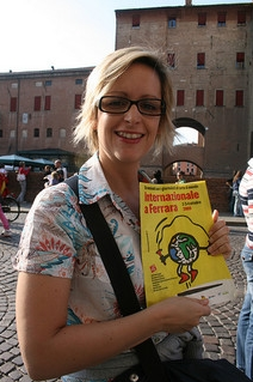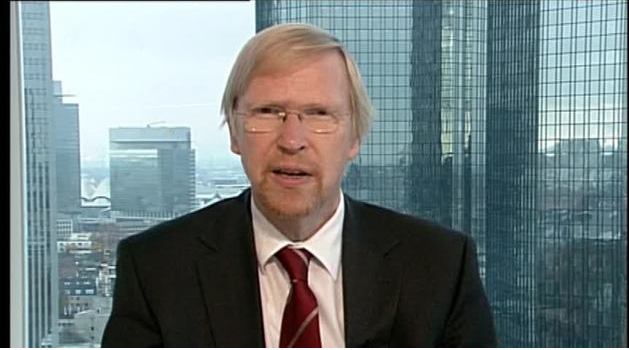|
(di Alessia Cerantola per Nordesteuropa)
Dopo essere stato per due anni capo economista della Deutsche Bank a Francoforte e responsabile dell’ufficio studi dello stesso istituto tedesco, lo scorso 13 aprile Thomas Mayer ha lasciato il gruppo per occuparsi come economista indipendente di consulenze esterne nel settore. Le sue proposte per limitare i danni della crisi sull’Eurogruppo sonostate al centro di dibattiti negli ultimi mesi. Ospite a novembre del Salone Europeo della Cultura-Venezia 2019, Mayer parla dei problemi dell’Eurozona e delle riforme attuate in Italia sotto il governo tecnico. Il tema della fine dell’euro è stato al centro delle preoccupazioni dell’Unione. Crede che sia ancora una possibilità reale e concreta nel caso di un rifiuto della richiesta d’aiuto da parte della Spagna? «No. Come ha detto il presidente della BCE Mario Draghi l’euro è irrevocabile. Tuttavia c’è da chiedersi un’altra cosa, se il carattere dell’Unione economica monetaria (EUM) e la sua adesione cambieranno. Il rischio è che l’euro diventi una moneta debole, e che l’EUM perda i suoi membri più deboli e più forti. Anche se è probabile che la Grecia presto riceva altri soldi, un’eventuale uscita del Paese dall’EMU rimane un’evidente possibilità. Inoltre, il fatto che la BCE porti avanti la sua politica monetaria per i paesi più deboli fa crescere l’inflazione in Germania. Questo potrebbe portare nei prossimi anni a discutere sull’adesione della stessa Germania all’EUM». Dopo lo sforzo fatto dalla BCE per stabilizzare il mercato nel breve termine, che cosa resta da fare in Europa in una prospettiva a lungo termine? «Idealmente la BCE dovrebbe tornare a perseguire l’obiettivo della stabilizzazione dei prezzi e del rafforzamento dell’euro. In realtà la BCE continuerà a trovarsi nella situazione di dover dare aiuto a governi e banche che hanno problemi finanziari e di sostenere crescita indebolendo il tasso di cambio dell’euro».
0 Comments
 Internazionale Festival in Ferrara Internazionale Festival in Ferrara Published 18th December, 2012 on the European Journalism Centre magazine. Author: Alessia Cerantola The success of the 2012 round of journalism events in Italy sparks hope within many communities of Italian journalists. Faced with mounting unemployment and an old-fashioned media market, many journalists consider these meetings to be a wave of energy and an important resource for improving their skillsets. Despite Italy’s questionable record of freedom of expression and a loss of credibility of some traditional media outlets, conferences and journalism festivals are flourishing. By gathering journalists and other professionals from different fields and countries, the festivals become a platform for debates involving journalists from Italy and abroad and readers from any parts of the country. The panorama of media-related events in Italy presents unique chances for participants to listen, to be a part of the conversation about the future of journalism and, of course, to network. Some of the festivals are organised by media companies for their readers, such as the festival of Il Fatto Quotidiano in Lucca. Here, through programmed panels, attendees can relive their reading experience via live sessions with flesh-and-blood newsmakers and journalists. Events are also organised on specific themes, such as the Youth Media Days held in Naples this year. The figures reveal the success of these events. The Internazionale meeting in Ferrara, organized by the magazine, welcomed 170 guests from 38 countries, and the number of attendees has risen from 17,000 people in 2007 to 66,000 in 2012. The three-day Festival of TV in the city of Dogliani and new media recorded about 20, 000 visitors in its first edition this year. To what extent this growing success might be related to the particular social and political situation in Italy is difficult to determine. But it’s worth reflecting on the reasons that bring people disaffected by national journalism to populate these social meetings and actively participate. Five benefits of journalism events in Italy: |
Archives
August 2023
|

 RSS Feed
RSS Feed
